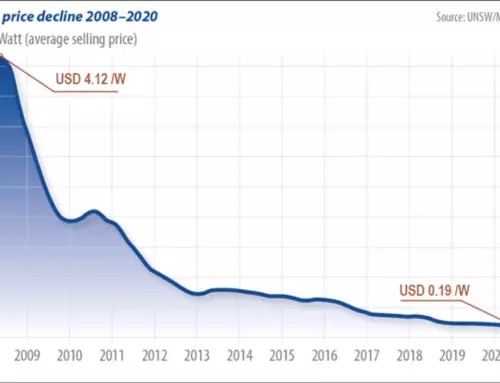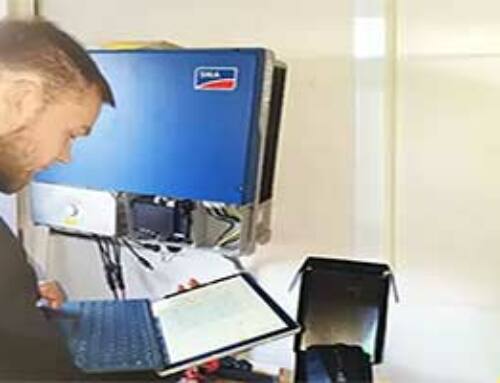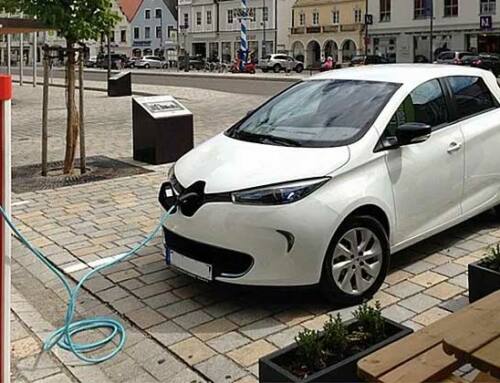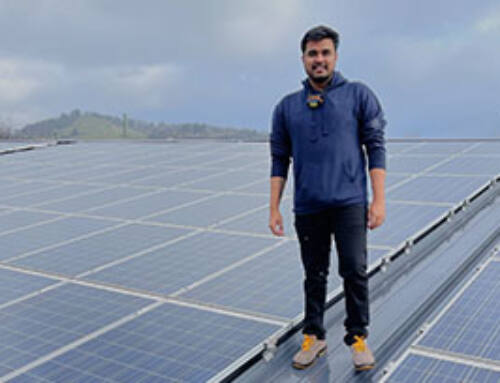In our last blog post we wrote about the importance of having and developing soft skills as they are needed in your daily work at a solar company or in your own solar business. But that didn´t answer the question of what jobs exist in the solar industry – there are probably more than you ever expected.
This is why we are starting today our short job introduction series.
The small series of introducing job segments and skills
Let’s start our small series with these three „core jobs“ that every solar company will have. At the end of the blog post, you will find an overall list of jobs that exist in the solar industry.
The three „core job“ examples we would like to introduce to you, are job descriptions as they exist in a company like maxx-solar in Germany or any other solar company for example in Africa, as the jobs don´t differ that much.
Of course, there are many more people working at maxx-solar and are also necessary to run a company such as a Managing Director who is involved in the overall business development, finances and human resources. He or she must be eager to take a lot of responsibility and have great leadership skills.
If you are an entrepreneur you will probably combine all mentioned positions at the beginning of your startup career and have all the responsibility that the managing director faces every day. But for those of you who don´t want to be entrepreneurs but seek employment contracts within the solar industry, here are the jobs you could reach for.
Let’s find out what each position requires and if it is something that could fit you. The three „core jobs“ that you will find in almost every solar business and within the solar industry are:
- Project Manager
- Technical Manager
- Electrician
Explaining the three „core jobs“ and skills required:
1) Project Manager
This position is one of the positions that can also be filled by lateral entrants. This means for example: You have studied political sciences or environmental studies or any other kind of social science or life sciences and you have gained some years of experiences in leading and managing projects – then this position could be for you. Of course, you should have a strong interest in the field of renewable energy and solar technology. But these things you can learn in courses – online and offline and get a basic knowledge of it as you later have to work hand in hand and very closely with the Technical manager and the electricians. On the technical side, one could learn within about four to six month.
The Project Manager is the person in charge of the overall project. Often you are also can be seen as the sales manager as you are the first one who will receive leads from the website or getting phone calls from interested customers. Furthermore, after receiving those calls or leads you will make appointments with the clients, and do a needs assessment at the future project site (home or company) and then send out the quotes. If the customer agrees with the quotes and it comes to a successful contract, your work really starts.
You have to monitor the project at all time and make sure that you planned all steps from visiting the customer, signing the contract, buying the components (or issuing the list of components that have to be ordered to the purchasing department/person), then making appointments in accordance with the roofer and the client so the roofer can go up on the roof and install the constructions where later the solar panels and wires will be connected. A roofer is in Germany a person that is in charge of tilling a roof and it is a skilled occupation. If you are from a country where there is no specific job description and occupation such as a roofer you probably will work together with installers who will climb on the roof and set the solar panels up there and wiring them.
But let’s focus on the Project Managers tasks again. You have to give the correct collected data and documents to the technical manager who will then work closely with the electrician on planning and installing the system. On the final day, when the solar system goes „live“ on the grid you will be there together with the electrician and an external auditor who will check if the whole system was planned and installed according to the many guidelines and rules that exist (depending on the country you live in this can vary).
After the system has gone „live“ and started producing electricity, you can hand over the solar system to the customer and give him /her an introduction of how to monitor and check the solar system by themselves online.
If a problem occurs, or they have any questions, you are the first one that the customer will reach out to (via phone or mail) even sometimes on weekends during the whole implementation phase. Afterwards, the customer support department/ person will be there for the questions of the customer.
So in short: It is a very complex and challenging role that involves end to end project and „people“ management. But is also very rewarding when the project is finished and the happy customer is thankful that everything went smooth due to your great planning and managing. You will also be the one being praised on Google reviews, if the customer is happy, which always feels great.
What kind of hard skills do you need for the job?
Good project planning and project management skills. Good overall knowledge about the solar systems you are selling and how the whole process from the sale to the final „handing over“ to the customer works. A profound knowledge of solar systems and the renewable energy industry is a strong asset and should be re-refreshed as much as possible.
What kind of soft skills are needed?
If we look at our soft-skills list that we mentioned in our last blog post. The following soft-skills are needed:
Good planning and self-organizing skills, being someone who is able to keep an overview on a day to day business is a must if you want to become a good Project Manager. Good communication skills (with customer and the other project members), good listening skills (if project members indirectly mentioning problems they see ahead etc.) and in general good interpersonal skills as you have to work with different kind of people on a daily basis are a must-have. Patience and not losing your temper are probably also things you should have on your list if you are willing to become a Solar Project Manager.
2) Technical Manager
After everything is double-checked with the Project Manager the Technical manager will give the list to the purchasing department. He then starts working on the solar system electric design to give this information to the electrician later on.
Planning the solar systems also means creating the whole system online on a simulated roof that is exactly like the roof that the future solar system will be installed on. There the technical manager can plan the panel layout of the solar panels and how they should be connected.
Also, an important topic – at least here in Germany is: static. Static in this case means for example that the roof with the solar panels on top is able to survive snow loading and heavy winds. Some software programs already make it easier as they enable the technical manager to calculate the static loads. In difficult cases, the technical manager must or will contact a structural engineer to make sure that the roof will be fine with the planned system.
After everything is planned and designed and the solar system components arrive at site, the Technical Manager will manage the installation progress, make sure that all the equipment are available and delivered and co-ordinate between the Project Manager and Electricians.
Online monitoring of the solar system is done after the system is commissioned.
The Technical Manager is also the first go-to person if the Project Manager can´t help out the customer with their specific technical questions. Any problems that they are not able to resolve will be referred to the Technical Manager.
For example on the customer’s app shows that the system on a very sunny day only produced 50% of electricity what it normally does and the battery is also showing some problems. Then the people from the customer support hotline (if they are not able to answer themselves) will seek the technicians’ opinion. The technician in many cases can also monitor the system after the system has been handed over to the customer (if the customer bought the maintenance package for example) and there he can easily see for example that one solar panel is not working as planned or that something with the software of the battery storage is not working well and needs to be reset.
So in short: It is a very complex and challenging role as well but the Technical manager must be a person with strong technial knowledge and skills. He or she is an expert in the field of solar systems and their components.
What kind of hard skills do you need for the job?
As the technical manager needs to have a strong background in technical fields, such as electricity or engineering.
Being good in Math, Physics or/ and crafting are the basics for becoming a good Technical manager in the solar industry. In Germany these specific jobs can be learned during advanced training by a certified training institution such as the Chamber of Crafts where you learn
- a) everything about photovoltaics and solar thermal energy,
- b) Sales promotion and market development,
- c) Overvoltage/lightning protection/EMC and
- d) solar system design.
What kind of soft skills are needed?
Good planning and self-organizing skills are here needed as well. You should have strong analystical skills and be able to bring all data quick together. An interest in designing things with software and working with computers on a daily basis should be things you like. Here as well, strong interpersonal and communication skills are a big asset as you will need them every day when you speak to your Project Manager, Electrician and sometimes with the solar manufacturer as well as now and then you will need their specific feedback when you are planning a solar system. Good stress management skills are a big asset if you aim for becoming a Solar Technical Manager
3) Electrician
The Electrician is most of the time outside „in the field“ which means he or she is very often at the project sites or at the customers place for installation and commissioning of photovoltaic systems, inverters and battery storage systems (roof work is mainly carried out by roofers in Germany). So, he or she is the one in charge of the electrical wiring, troubleshooting malfunctions, repairing equipment etc. That’s why electricians are spending very little time at the office and are most of the time outside of the office.
What kind of hard skills do you need?
First, you must be a certified electrician. In Germany, this means you have to do a 3 to 4 years of vocational training which is done in blended learning style. This means you are part of your time at the company where you are the „Trainee“ – here you learn the technical skills from a so-called „Master“- Electrician, someone who is certified to teach and train you. Next to that you also go to vocational training school and there you learn all the knowledge you must have in order to become a good Electrician. The knowledge we speak of could be for example: knowledge of safety procedures, government regulations and guidelines, and electrical installation standards.
What kind of soft skills do you need?
Due to the high risk associated with this job, electricians must be primarily responsible individuals who put safety precautions first. Excellent critical thinking and problem-solving skills are important as well. You must be somebody who is very good at planning and managing his time outside the office. Punctuality is key when it comes to meeting with customers and working at project sites. As all the jobs mentioned so far, being a team player and working with others is a great skill you should have as things don´t often go the way there were planned. It is also a physically very demanding position as one has to do manual labour and often lift heavy equipment.
This is not all. There are many more jobs in the solar industry
We hope you are now better informed about what job exist in the solar industry and maybe you can find yourself in one of those descriptions above? In our next blog post we will introduce to you the following jobs segments and skills you may need:
- Customer Support
- Purchasing
- Marketing and Sales
- Warehouse
- Book keeping
- Trainee
Please be aware that this list is not a 100% final list of what jobs exist in the solar industry. They are just jobs that we can give you more insights about as we have them in our company and therefore can talk about with confidence.
To give you even more insight and a short overview of all the areas you can work in and professions you could seek within the solar industry, I would like to share the International Labour Organisations (ILO) Research Report and findings from 2011 with you. [page nr. 4; http://www.ilo.org/wcmsp5/groups/public/—ed_emp/—ifp_skills/documents/publication/wcms_168354.pdf]
In this research brief the ILO made a list of the following job positions which they divided into Project Development (Solar energy) and Cross-cutting/ Enabling Activities (all sub-sectors) that someone can look for or go after if she or he is interested in getting into the solar industry.
Project Development
- Project Designers (Engineers) (H)
- Architects (H) (small projects)
- Atmospheric Scientists and Meteorologists (H)
- Resource Assessment Specialists and Site Evaluators (H)
- Environmental Consultant (H)
- Lawyers (H)
- Debt Financier Representatives (H)
- Developers/Facilitators (H,M)
- Land Development Advisor (H)
- Land Use Negotiator (H)
- Lobbyist (H)
- Mediator (H)
- Environmental and Social NGO
- Representatives (H,M)
- Public Relations Officer (H)
- Procurement Professionals (H,M)
- Resource Assessment Specialists (H)
Cross-cutting/ Enabling Activities
- Policy Makers and Government Office Workers (H,M)
- Trade Association and Professional Society Staff (H, M,L)
- Educators & Trainers (H)
- Management (H,M,L)
- Administration (H,M,L)
- Publishers and Science Writers (H,M)
- Insurer Representatives (H,M)
- IT Professionals (H,M)
- Human Resources Professionals (H)
- Other Financial Professionals
- Accountants, Auditors and Financers (H)
- Health and Safety consultants (H,M)
- Sales and Marketing Specialists (H,M)
- Clients (H,M,L)
* H: Highly-skilled (professional/managerial); M: Medium skilled (technical/skilled crafts/supervisory); L: low skilled.
We hope that gave you a first impression of what you can do and what kind of jobs are out there to look for.
As always, if you have any questions please write to blog[at]maxx-energy.co.za and let´s talk about it!






